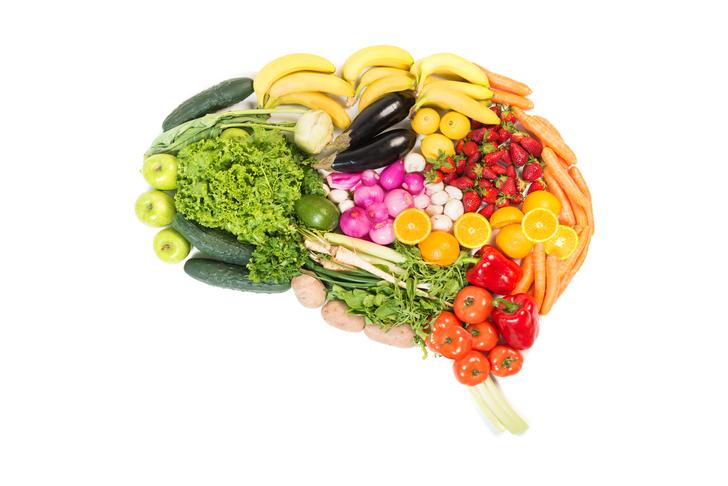Boosting Brain Power: Incorporating Brain-Healthy Foods into Your Diet
Brain-Healthy Foods
We all know that eating a balanced diet is essential for maintaining our physical health, but did you know that it can also play a crucial role in promoting brain health? Research has shown that certain nutrients can enhance cognitive function and protect the brain from age-related decline. So, if you’re looking to boost your brain power, it’s time to start incorporating brain-healthy foods into your diet.

Advertisement
Omega-3 Fatty Acids
One of the most critical nutrients for brain health is omega-3 fatty acids. These essential fats are vital for the proper functioning of brain cells and have been shown to improve memory, focus, and mood. Fatty fish, such as salmon, mackerel, and sardines, are excellent sources of omega-3s. If you’re not a fan of fish, fear not! You can also get your daily dose of omega-3s from walnuts, flaxseeds, and chia seeds.
Advertisement
Vitamin E
Another nutrient that has been linked to better brain health is vitamin E. This powerful antioxidant protects brain cells from damage caused by free radicals and has been shown to slow cognitive decline in older adults. Nuts and seeds, such as almonds, sunflower seeds, and hazelnuts, are rich in vitamin E. To get the most out of these brain-boosting foods, try snacking on a handful of mixed nuts or sprinkling seeds onto your salad or yogurt.
Advertisement
B Vitamins
B vitamins, particularly B6, B9 (folic acid), and B12, are also essential for brain health. These vitamins play a crucial role in producing brain chemicals that affect mood and other brain functions. A deficiency in B vitamins can lead to memory problems and even depression. To make sure you’re getting enough B vitamins, incorporate foods like whole grains, legumes, dark leafy greens, and lean meats into your diet.
Advertisement
Polyphenols
Polyphenols, a group of antioxidants found in plant-based foods, have been shown to protect the brain from damage and inflammation[[2]]. Berries, such as blueberries, strawberries, and blackberries, are exceptionally high in polyphenols[[2]]. These tasty fruits have been linked to improved memory and cognitive function, so go ahead and toss a handful of berries into your morning smoothie or oatmeal[[2]].
Advertisement
Cruciferous Vegetable
Cruciferous vegetables, like broccoli, kale, and cauliflower, are packed with vitamins and nutrients that support brain health, including high amounts of antioxidants and glucosinolates[[1]]. Glucosinolates relieve oxidative stress, mitigate brain inflammation, and support neuron development and maintenance[[1]]. Higher glucosinolate levels improve cognitive performance and reduce age-related brain disorders[[1]].
Advertisement
Eating Patterns
When it comes to brain health, it’s not just about what you eat but also how you eat. Research has shown that eating patterns, such as the Mediterranean diet, can positively impact brain health[[2]]. The Mediterranean diet emphasizes whole foods, such as fruits, vegetables, whole grains, fish, and healthy fats, and is low in processed foods and added sugars[[2]]. By adopting this eating pattern, you’ll be nourishing your brain with an assortment of essential nutrients.
Advertisement
Coffee and Tea
Research also supports the idea that tea and coffee, when consumed moderately, have positive effects on the brain[[2]]. Components in both beverages, like caffeine and polyphenols, can improve memory, attention, focus, and overall cognitive abilities[[1]]. However, consuming tea and coffee in moderation is essential–ingesting excessive caffeine may lead to adverse effects on your brain[[1]].
Advertisement
Hydration
In addition to incorporating brain-healthy foods into your diet, it’s paramount to remember the importance of staying hydrated. Our brains are approximately 75% water, so maintaining proper hydration levels is essential for optimal brain function[[1]]. Aim to drink at least eight glasses of water a day, and if you need a little flavor boost, try adding a splash of lemon or a few cucumber slices.
Advertisement
Lifestyle
Lastly, it’s essential to consider lifestyle factors that can support brain health. A brain-healthy diet is just one piece of the puzzle regarding maintaining cognitive function. Regular physical activity, mental stimulation, and adequate sleep are vital components of a brain-boosting lifestyle[[2]].
Regular exercise helps improve blood flow to the brain, supporting cognitive abilities and memory function. In contrast, mental stimulation through puzzles, learning new skills, or engaging in intellectually challenging activities can help maintain brain function as you age[[2]].
Furthermore, our brains perform essential functions while we sleep, such as consolidating memories and flushing out waste products[[2]]. Getting a proper amount of sleep (approximately 7 to 9 hours per night) supports brain health and sharpens cognitive function[[2]].
Advertisement
Conclusion
The bottom line is that adequate nutrition, hydration, and a brain-boosting lifestyle all enhance cognitive function and overall brain health. Next time you’re at the grocery store, consider adding these brain-healthy foods to your shopping list – after all, your brain will thank you for it!

Advertisement





